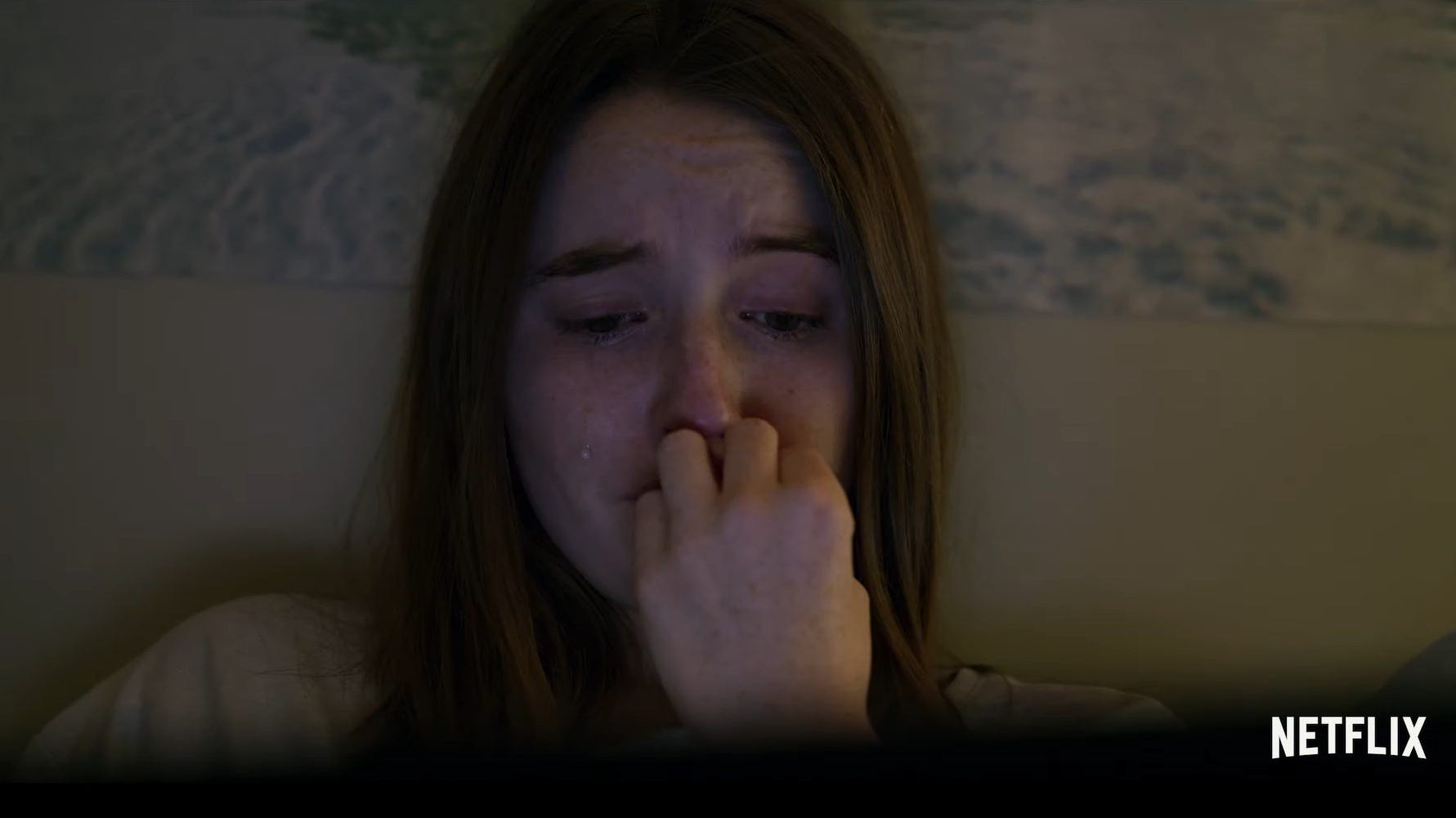Netflix’s ‘Unbelievable’ tells the story of a bone-chilling crime, a revolting affair with the law enforcement, and a commendable quest for truth. Based on a true story, it takes a narrative structure that keeps us in sync with the thrilling investigation while also keeping in touch with the heartbreaking story of a young woman who loses everything after her rape. Packed with great performances and serving as an emotional rollercoaster, this is the show that you don’t want to miss. If you haven’t yet seen it, head over to Netflix.
SPOILERS AHEAD
Summary of the Plot
In 2008, someone breaks into Marie’s apartment and rapes her. She reports the incident and the investigation begins. As if she hadn’t already been going through enough, the whole thing comes back to bite her. She is forced to believe that she had made up the story to have the attention of her family and friends. She is even charged for it and has to spend time in therapy, after paying a hefty fine. A couple of years later, another similar incident happens and another detective is placed in charge of it. The only difference here is that she is committed to seeing the whole thing through.
Why Didn’t the Cops Believe Marie?

Marie Adler rings her foster mom, Judith, telling her she has been raped. Before that, she had tried calling her friend, Connor, and it is the friend next door who calls 911. The cops show up, look around her place, and ask her to narrate everything in detail. As the traumatic images flash in her mind, she tells them everything. It pains her to go through it again, but she knows how crucial it is for the investigation. But one time is not enough. Later, the detectives arrive and she is asked to give another statement, where she has to retell everything again, in excruciating detail. After that, she is sent to the hospital where she is checked for injuries and bruises and for giving samples.
The procedure is invasive and takes a lot of time, but it needs to be done. So, she goes through with it. But then, the nurse asks her to tell the whole story one more time, because the hospital needs separate records, and she has to relive the experience for the third time now. Marie thinks now there is no one else left to tell; but the next day, she is called to the station and not only has to repeat the whole thing all over again, but also has to write it down for the official statement. Meanwhile, the cops comb through her place, looking for any hard evidence. But the rapist has taken a lot of precautions and there is nothing they can find.
What happens here is that the cops begin to wonder how the perpetrator left absolutely no trace whatsoever. Doubt begins to take shape, which is further strengthened when Judith shares her insights regarding Marie’s life with them. She tells them that even though Marie is a good person, she has been through a lot of bad stuff. Having moved from one foster home to another, the absence of her father and the reckless behaviour of her mother have affected her psyche in an adverse manner, and she has always been hungry for the one thing that she never really got as a child- attention. Having turned 18 and moving out from foster care has not been an easy transition for her. Judith tells them that Marie’s story doesn’t look right and she might be doing all of it enjoy the limelight for a while.
There are a number of faults they find in Marie’s story. The absence of some foreign element in her apartment, nothing that shows the presence of an intruder, doesn’t look encouraging to the cops. The things that Marie claims were used in her assault are her own. Judith finds it hard to believe that a shoelace could be enough to tie her up. With the seed of doubt in their mind, the cops begin to interview the people around her, and they find out some discrepancies in her story, which have also shown up in the five different accounts she shared with them. Looking into her past convinces them of her guilt, and after pestering her for a while, they succeed in subjugating her to accept that it was all made up. Is Marie at fault here? Should she have handled her accounts better? Should she have got her story right before telling the cops anything?

The only one at fault, in this case, are the detectives leading the investigation. First of all, they shouldn’t have allowed their perspective to be changed by some other person. Even though Judith had faced something similar in her young years, it doesn’t mean she knows everything about how other people react to their trauma. Everyone has a different way of handling it, and her problem is that she couldn’t understand Marie’s recuperating process. If she thought Marie wasn’t handling things better, she should have talked to her about it. Going to the cops was a very immature decision.
No matter what Judith thought, the cops should not have allowed her subjective perception to affect their investigation. If they thought Marie was lying, they should have gone through a proper procedure to determine that. If they didn’t have any proof for the rape, there was nothing against it either. Their only argument was that there were inconsistencies in her story. Seasoned cops as they were, it seemed rather regressive for them to say such a thing. The brain works very creatively when it comes to protecting the person from trauma. They are already scarred for life, and the brain tries to lessen the pain by playing some tricks. For Marie to have remembered every single thing in stark detail is ridiculous. Not to forget that she had been blindfolded the whole time.
After the rapist left her bound and gagged in her apartment, her survival instincts kicked in and she broke free and called for help. Or, she called first and broke free later. It might seem like something that normal people should be able to remember in the order that it happened, but this situation is not normal. Her mind is busy trying to save her, so we should cut it some slack if it doesn’t register some trivial details of that morning. The cops should have understood it. Instead, they latch onto it and coerce Marie into not only accepting that she had lied but also in making her believe that the rape had never happened. This is another level of psychological manipulation being incorporated by them, which makes them as much complicit in the crime as the rapist himself.
If you think that the cops weren’t at fault, that they were analysing just what was in front of them, then you should also consider what happened a couple of years after. Det Karen Duvall came across a similar case. She too had nothing to go on, no physical evidence and the victim had nothing to prove that they had actually been raped. But did she turn it around on her? Did she question her story and coerce her into doubting herself? No, she got to the root of it, no matter how much time it took, however many sleepless nights. Marie and Amber’s cases were exceptionally similar. While one officer pursued it to the end of the world, the other turned it around and satisfied themselves with whatever got the case closed.
The Breaking Point of the Case

When Det Karen Duvall picks up Amber’s case, everything looks like a clean slate. She doesn’t have much to go forward with, but she knows that she needs to find this rapist and see the case through to the end. Scratching her head, looking for something, doesn’t yield a lot. The most unexpected thing happens when she mentions the case to her husband who tells her that something similar had come up in his department as well. We are tempted to think that it would be Marie’s case, but that had happened a long time ago. Duvall is referred to Det Grace Rasmussen. Turns out, their cases are similar to each other’s to the dot. This leads them to merge the investigation and soon they discover two other cases that could have been perpetrated by the same man.
Gathering bits and pieces from the account of different victims leads them to come up with a rough profile of the man. Further, after scouring through endless footage in the CCTV, they zero in on a white Mazda with a broken screen and focus their energy on locating it. Amber tells them that the rapist told her that he could speak four languages and had been overseas. The locations of his travel point towards a military background. Another thing that irks Duvall is that the guy left the scene too clean. It was as if he knew exactly what the cops would look for. He had been very methodical in his approach. Stalking the victims for weeks before finding the right time to pounce on them. He had even broken in their homes before the night of the rape. It was as if he went through a trial run to see if things would run smoothly when he wanted them to.
Moreover, he was careful enough to not repeat the crime in the same neighbourhood. He knew the cops don’t easily share info of their cases, not even with other cops. So, they would never come to know about the cluster he had created and would never get a clear picture of what he was doing. This methodical approach leads her to believe that it could be someone from law enforcement. Rasmussen asks her to keep this to herself because pinning the blame on one of them would make the investigation even harder, as everyone will back out and they won’t have any more support going further.
Moving forward, they rein in the FBI and make use of its resources to gather more information. Eventually, due to the intern’s hard work, they are able to locate that white Mazda and get its licence plate. This leads them to Chris McCarthy and once they get the DNA to prove his involvement in the case, everything falls right into place. There were a number of small things that the detectives held on to find whatever break in the case they could. All of them eventually paved the way for the final reveal. But if there was one moment that can be counted as the monumental one, the one that started the domino to bring the whole thing down, it wouldn’t be the time they pinpointed the Mazda or focused on the honeycomb pattern they found on the doors. It wouldn’t even be the discovery of other victims.
It is a simple fact that two detectives cared enough to pursue a case that otherwise didn’t make any sense. Had they given in to the temptation that the victim had concocted this out of their own imagination, nothing would have happened as it was supposed to. The first case had happened in Washington and the rapist accepts that he had been very sloppy the first time around. Had the detective handling that case been more attentive, it would have never happened to the girls that followed. Had Rasmussen and Duvall not stuck to the case like their lives depended on it, Marie wouldn’t have been the only one to believe that she had made the whole thing up.
The Ending
After piecing together whatever little information they had, Detective Karen Duvall and Grace Rasmussen succeed in identifying the rapist. They need a substantial confirmation to get an arrest warrant, for which they stage a plan to get McCarthy’s fingerprints. But in a surprising turn of events, they discover that they had followed the brother of their target. Nevertheless, they get his DNA, which helps them identify the familial lineage of the culprit. They nab him and a search of the house leads them to his “trophies”. Every time he raped someone, he would take something from their place, be it their camera or their underwear. The recovery of the camera gives them all the pictures he had taken, and they discover another one of his victims, Marie Adler.
Wind back a couple of years, we find Marie struggling in life. She has been forced to accept that her rape was a hoax, and this has deprived her of any friends or supporters she had. Not only this, her name is leaked to the press and the City charges her with gross misdemeanour. This could mean a year’s jail and $5000 fine. But in one stroke of luck, she finds a lawyer who gets a plea deal in which she is asked to get counselling and has to deposit only $500.
But then, the truth comes out, and she receives the cheque back. This makes her realise that she has been compromising in her life for way too long and decides to sue the City. They dismiss the case after agreeing on the reparations of $150,000. She could have gotten more, but Marie makes peace with the fact that they have acknowledged their mistake. She leaves town, but not before confronting the detectives who ruined her life. While one of them is remorseful, the other makes no attempts to let her know that he is sorry for her. Later, she calls Duvall and thanks her for having her back even when her life was screwed up. Marie gets a chance at a new start while the other women confront their rapist and finally begin to feel a bit safer.
McCarthy takes a plea deal but doesn’t want to agree to the kidnapping. What interests the detective further is the encrypted content on his hard drive. Rasmussen believes, and rightly so, that there are names and folders of other victims in there. She tries to get the password out of him, but that doesn’t happen. However, to everyone’s relief, he is convicted with maximum penalty, which means he is never getting out. The hard drive remains a mystery, and Rasmussen has to make peace with the fact that she can’t serve justice to each and every one of the victims. At last, McCarthy demands an audience to explain himself. He talks about his methods and how stupidly the cops behaved on his first attempt. This scene reminds us of another Netflix hit, ‘Mindhunter’. As we watch the rapist talk, we wonder if Holden and Bill should have been the ones interviewing him.
Is ‘Unbelievable’ Based on a True Story?
The way the events of this story unfold, it seems to have come straight out of a novel. Why wouldn’t the cops believe a victim? How can two cops catch a culprit with absolutely nothing to go on with? It really is an excellent tale, and it is true to every scene. All the rapes, the MO of the rapist, the behaviour of the law enforcement, all the mental and physical injuries sustained by the victims are real.
The show is actually based on ProPublica’s Pulitzer-winning article and doesn’t add any unnecessary angles to diminish the effect of the story. The details have been taken care of and the events have been portrayed just as they had happened. Luckily, this means that the rapist (Marc O’Leary, in real life) was convicted to life in prison for 327 and a half years. He is never coming out, so the world is definitely a safer place without him. Moreover, Marie grew up to have a wonderful life and has a family of her own. After her incident, the police department went through an internal investigation to determine where the justice system had failed her. However, no one was on the receiving end of whatever charges should have been levied on the detectives. Jerry Ritgam, one of the detectives on Marie’s case, resigned after O’Leary’s arrest.
Read More in Explainers: The I-land | Green Frontier


You must be logged in to post a comment.